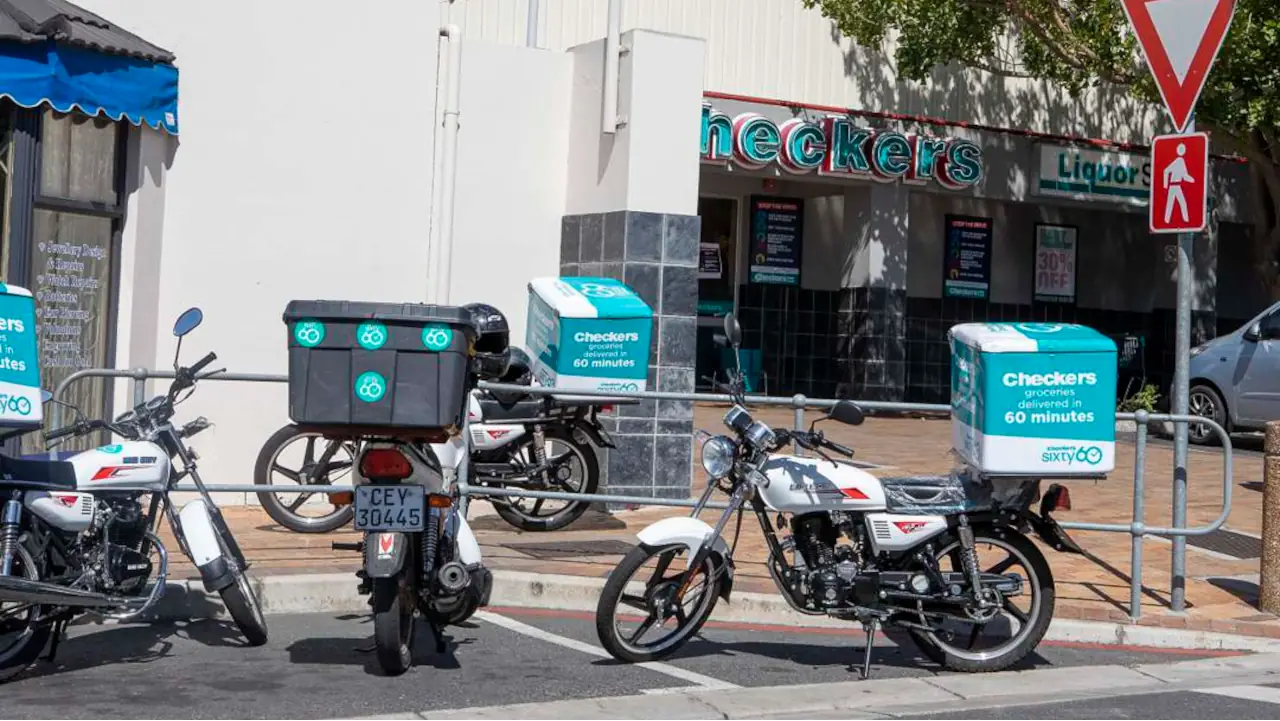Sixty60 Reveals Why South African Drivers Are Quitting At Twice The Rate Of Foreigners
South Africans are expressing fury after the popular grocery delivery service, Sixty60, owned by the Shoprite Group, disclosed that its local drivers are leaving their jobs at nearly double the rate of their foreign counterparts. This revelation has ignited a fierce public debate on social media platform X, with many citizens questioning the company’s employment practices and blaming poor pay, while Shoprite points to a deeper cultural issue.
The company confirmed that nearly 30% of its almost 9,000-strong fleet of drivers are now South African, a significant increase from previous years. However, retaining these local employees has proven to be a major challenge. According to the Shoprite Group, a key reason for the high turnover is South Africa’s “lack of a motorcycle culture” compared to other African nations.
Public Outcry Over “Motorcycle Culture” Explanation
The phrase “lack of a motorcycle culture” did not sit well with many South Africans online, who saw it as a weak excuse for not hiring and retaining more locals. Critics were quick to point the finger at what they believe are the real issues: low wages and exploitative working conditions.
One X user, Leonard Mbulle-Nziege, articulated a sentiment shared by many, stating:
No, the pay is bad, the working conditions are precarious, and they probably don’t have labour rights or access to medical benefits as well. These factors are the reason why foreigners dominate this b/c of how exploitative it is.
Another user, Evans Rasemana from ‘Africa Automation King’, questioned the company’s commitment to local training, asking:
Does this mean that the business model was always designed around importing illegal foreigners? Large retailers have training centres for cashiers, store managers, etc. Why not have training centres for local motorbike drivers?
Shoprite Stands By Its Assessment
Despite the backlash, the Shoprite Group maintains its position. The retail giant suggests that in countries where motorcycle delivery is more ingrained in daily life, individuals often grow up around and operate scooters, making them more suited to the demanding nature of the job. The company’s statement implies that foreign nationals from regions with a stronger delivery-riding tradition are simply better equipped to handle the role and, therefore, stay in it longer.
This explanation was met with widespread derision. User Toxxic Maffia responded with disbelief, posting:
So people are choosing to collect R370 because they lack motorbike culture? These people think we are all from Kampala.
The debate also took a political turn, with many commenters demanding that companies prioritise South African citizens in a country grappling with an extreme unemployment crisis. User LUTHANDO issued a direct challenge to the retailer, writing:
It must be “tough” for sure..we dont care but they must bite the bullet and COMPLY.. These jobs should be for Citizens…period!!
Calls For Training And Better Pay Intensify
Amid the anger, several social media users proposed solutions, arguing that Shoprite has a responsibility to invest in training local talent and offering more competitive remuneration. The suggestion that the company should create its own “motorcycle culture” through funded learnerships was a recurring theme.
User Rinyah challenged the company directly, posting:
What junk is this? Train them and Transport SETA will fund you. Let’s create employment not excuses. Hire me to setup this learnership. I can create this culture in less than 1 year.
Echoing the sentiments about pay, user Ngisemncane kabi drew a comparison with another service, stating:
Shoprite is talking smack. Uber managed to recruit local drivers for the Moto rollout and the guys are happy with their retainer. Checkers Shoprite simply doesn’t want to pay the locals a living wage.
As the controversy continues to swirl online, the discussion highlights the intense pressure on large corporations to address South Africa’s unemployment problem and the public’s scepticism towards explanations that appear to sidestep issues of fair wages and investment in local workforce development.

